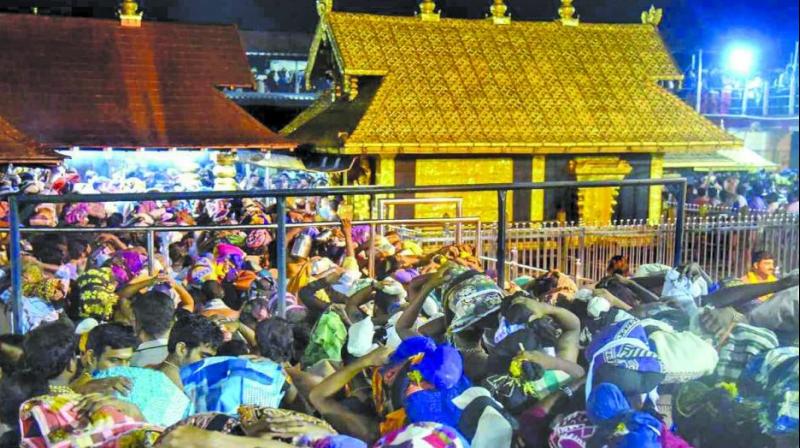How should SC defend itself against attacks?

We are used to seeing legislators, ministers, civil servants and policemen conduct themselves in ways that test the very idea of constitutional restraint. In such unseemly instances of misuse of power, courts step in to offer relief. The higher judiciary in India, all things considered, has played the role of protecting citizens against state arbitrariness. But its ability to discharge that role will be severely cramped if it fails to defend its own dignity from egregious assault, as we have witnessed lately.
Whether the judgment had limitations is open to debate, but last week the Supreme Court order permitting entry into the Sabarimala temple of females in the age-group 10-50 was openly flouted as women devotees were prevented from undertaking the pilgrimage. In the face of well-organised mass action by political groups, the Kerala government failed to uphold the top court’s order. Its inability and helplessness were starkly underlined.
But what grated on the ears were the words of RSS leader Mohan Bhagwat. He said in the context of the Supreme Court’s Sabarimala order that “repeated and brazen onslaughts” were occurring in the case of “Hindu society alone”. This was an attempt to mock the highest court and bring it into disrepute in the eyes of the majority community. To that extent, it was an open instigation to belittle the top court and India’s constitutional scheme.
It was also, at the same time, an effort to lionise and validate the action of the violent groups that stopped women from entering the temple. In the name of faith, mob violence was being given respectability and placed above any constitutional principle and above the judgment of the Supreme Court.
A few weeks earlier also, in the course of his three-day outreach programme conducted in New Delhi, Mr Bhagwat had sought to humiliate the Supreme Court. He had said that while the top court was looking at the title deed in respect of the dispute site in Ayodhya where the Babri mosque once stood, the question of building of the Ram temple would really be the decision of the Temple Construction Committee (of sundry Hindutva outfits). This was a clear case of seeking to upstage the highest court.
If one extra-constitutional body engages in insulting the Supreme Court, what recourse does the top court have to preserve its dignity and that of the Constitution, and deter other outfits from similarly offering provocation? Can the court summon the offender? Should the top court instruct the executive to take steps in line with the law and the Constitution in this matter? The question is what ways are open to the Supreme Court to protect itself when a group that carries influence with the government chooses to insult it. This is a matter that concerns all citizens.

